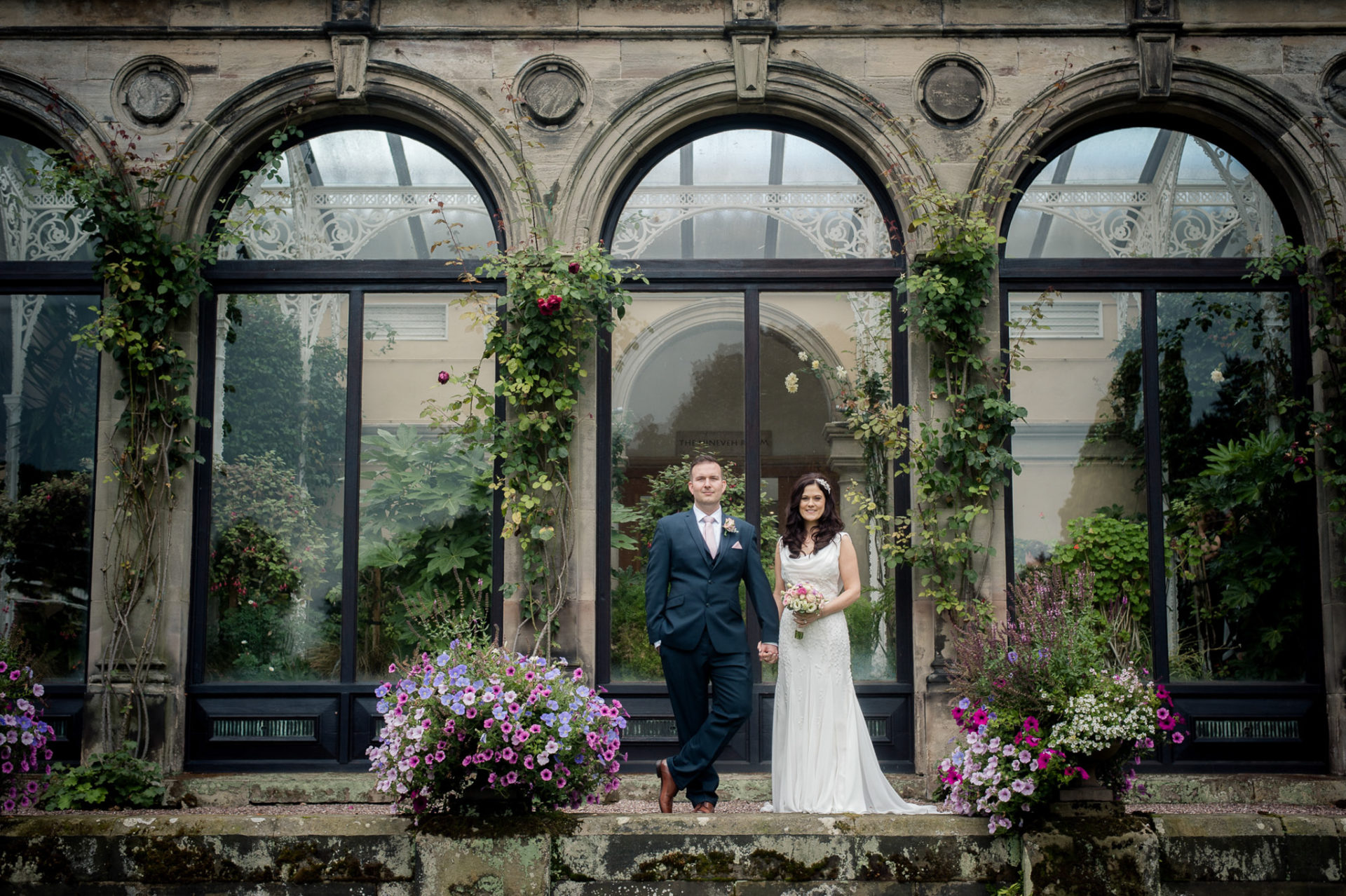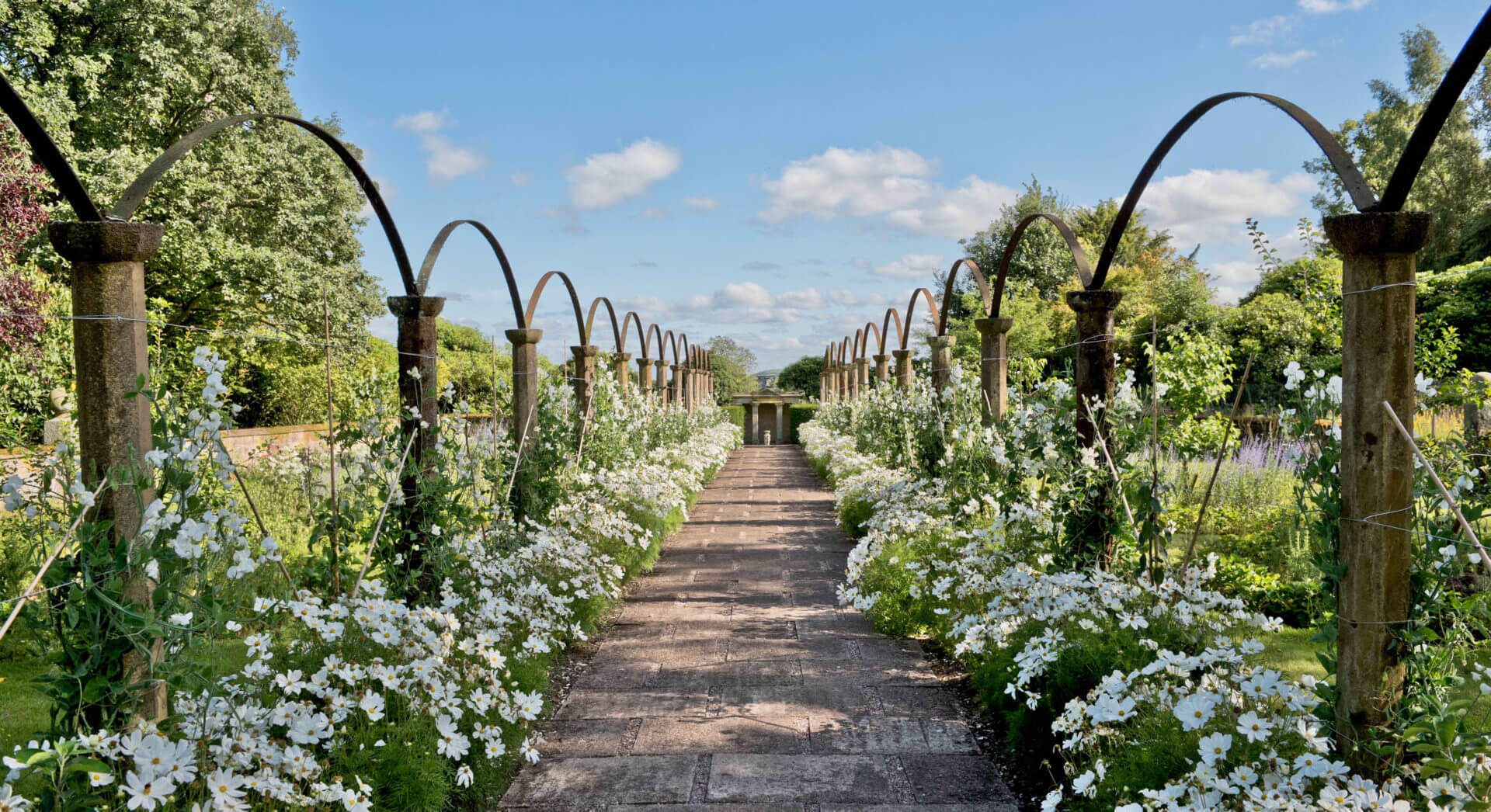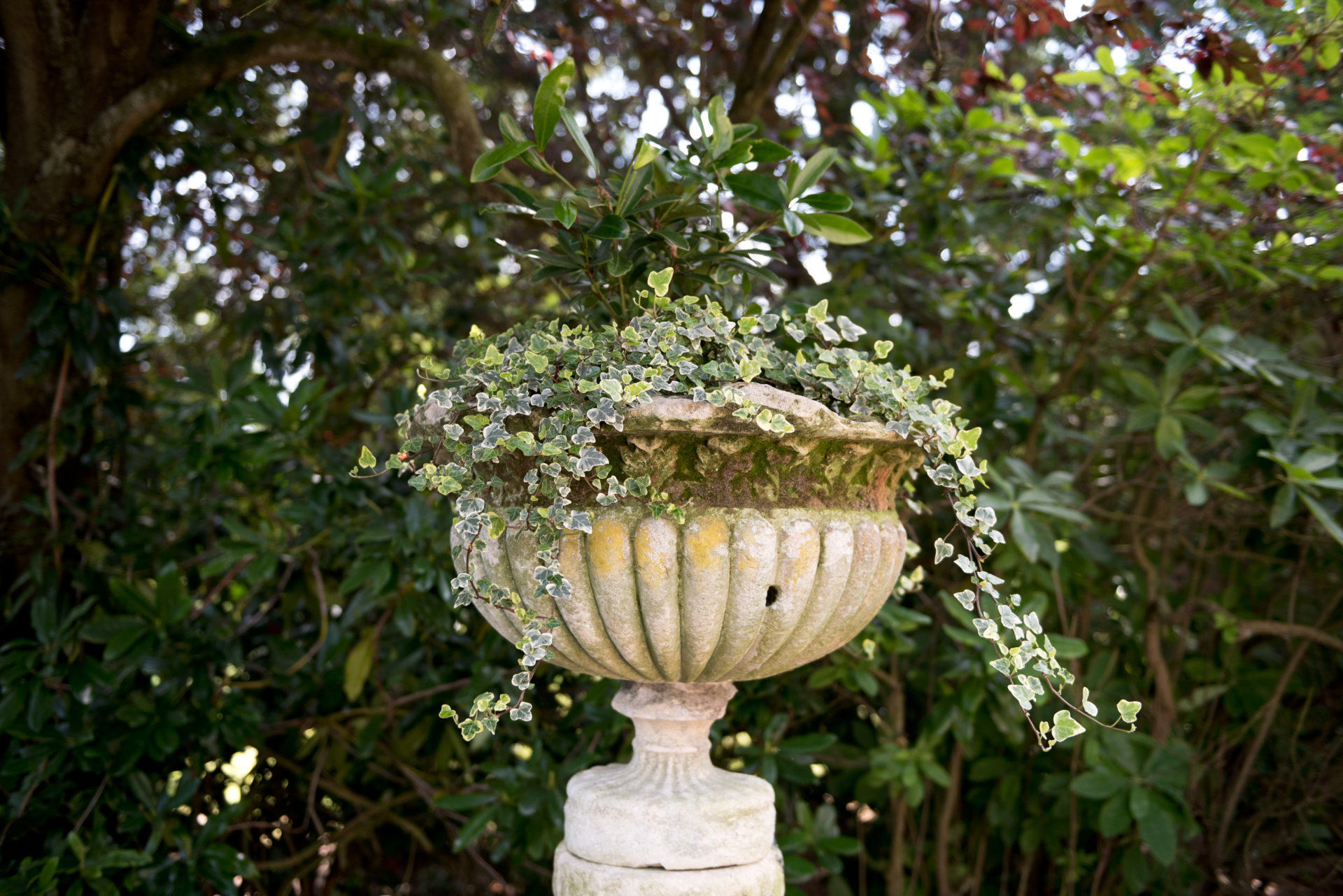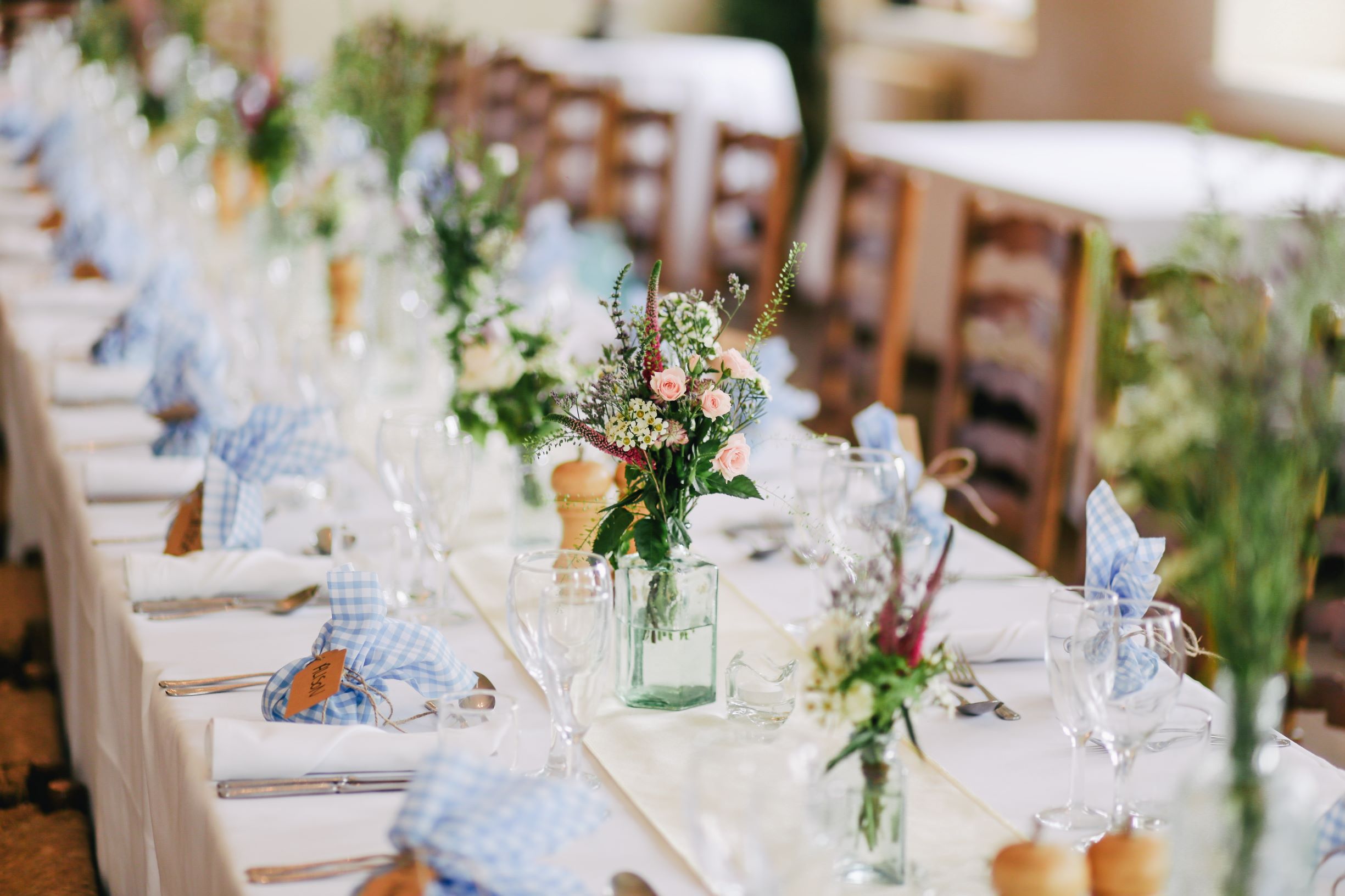
Picking a venue
Currently couples in England and Wales can only exchange vows in a fully-licensed fixed shelter, however in Scotland and Northern Ireland it’s possible to get married outside if the ceremony is performed by a religious official. At Sandon Hall, we provide legalised indoor wedding ceremonies, while offering the possibility of an outdoor wedding in our Temple Gardens.
However, choosing a venue for your outdoor wedding may require more thought depending on the season. You could pick a venue which works for all weather, offering both inside and outside spaces to accommodate for all eventualities. But if you opt for a more unique location, such as a forest or beach, you might want to remind your guests to wear appropriate shoes for the terrain. Likewise, if there is a chance that it may rain, make sure you rent some marquees to offer your guests and their beautiful outfits some shelter from the storm.

While marquees might not seem too glamorous, they come in enough shapes, sizes and materials to fit any wedding theme. Here at Sandon Hall, you can have your reception outside in a tipi with a beautiful open fire, and space for a dancefloor and bar, or in our conservatory area.
While structures like this are ideal for the warmer months, some may be impractical for a winter wedding, so it’s worth having an indoor backup plan just in case the weather takes a turn for the worst. You’ll likely also need portable air conditioning units for summer, and propane heaters for when the temperature drops during the evening.

Choosing decorations
Outdoor weddings offer you a completely blank canvas to make your ceremony uniquely yours. Choose your own curtains, cushions and other soft furnishings, and provide plenty of blankets to keep guests warm and comfy as the day turns to night. You could also drape gorgeous fabrics from the tipi’s ceiling to section off segments of the space, and create a dedicated eating area, bar, dancefloor and lounging space. And don’t forget the exterior too — floral bunting and parasols will look grand.
The lighting for your outdoor wedding is also important for setting the mood. You could decorate nearby trees and plants with warm fairy lights and also spread them over bushes and hang them over walls. Small tealights inside mason jars are great for creating ambience inside a tipi or, for a more refined look, transform your reception into a decadent ballroom with a chandelier. However, you should be mindful of the additional cost of renting a power generator to provide the electricity for the occasion.

Organising the catering
Indoor weddings often have traditional three-course meals, but being outdoors offers a great excuse to be more adventurous. BBQs and hog roasts are perfect for eating al fresco, or you could hire a pizza truck or provide a picnic-style buffet. Whatever you choose, make sure that your caterers are equipped for working out in the open — they may require a separate prepping tent, for example, and again, you’ll have to factor in electricity and running water.

Having plenty of drinks available is essential for any wedding, but this is even more important when you take it outside. A summer wedding could lead your guests to dehydrate more easily, so make sure there’s plenty of cold water on hand. Drinks can also be tailored to the season — for instance, you could have lemon and mint-infused water for the summer, and rich hot chocolates for winter.


